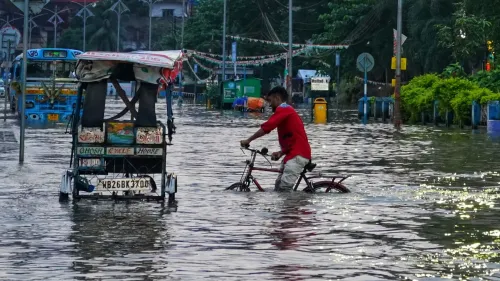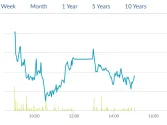
Incentivising underwriting and investment in nature’s resiliency could be beneficial – ICA
Insurers can draw concepts from the TNFD framework for better strategies.
Degradation of nature can impact the insurance claims supply chain, increasing construction costs on deteriorated land and affecting material sourcing and price volatility. This, in turn, can challenge insurers in accurately pricing premiums and repair costs, according to the Insurance Council of Australia (ICA).
In a collaborative effort by EY and the ICA, the report titled “Valuing Nature for a Resilient Future” highlights the evolution of insurance products which help protect Australia from natural disasters.
Investing in nature can serve as a robust resilience measure against climate change. For instance, coral reefs can reduce coastal erosion, lowering the risk to properties along the shoreline and potentially reducing insurance premiums.
Some insurers even offer products to protect reefs and facilitate rapid funding for reef damage recovery after severe storms.
Insurers are also considering how their investment portfolios can contribute to a nature-positive economy, from establishing natural capital funds to allocating capital in collaboration with governments for sustainability and marine conservation initiatives.
Global targets and regulatory requirements are evolving to support positive actions for nature, such as the 2022 Kunming-Montreal Global Biodiversity Framework, which aims to protect and conserve 30% of the world's land and oceans by 2030.
The paper explores the connections between insurance and nature, drawing on concepts from the TNFD framework. It outlines practical steps insurers can take to integrate TNFD considerations into their decision-making processes and business strategies.
ALSO READ: Australia assures FIs with new corporate plan amidst surfacing risks
General insurers in Australia issue 41 million policies annually and pay over AU$188m in claims every working day.
Insurance is a vital part of the economy, impacting all aspects of life, from businesses to personal vehicles, from housing to financial security.
In a country like Australia, where extreme weather events are frequent, insurance is crucial for safeguarding property, lives, and livelihoods.
Numerous links exist between insurance and nature. Insurers underwrite and invest in sectors that affect or depend on nature, creating both risks and opportunities related to nature for the insurance industry and its supply chain.
The next decade is a critical period for the financial services sector, including insurers, to address nature-related risks and seize nature-based opportunities.
For example, insurers can support government resilience efforts by underwriting coastal restoration projects, improving resilience against extreme weather events, and potentially reducing insurance premiums.
They can also channel capital toward investments that promote nature-positive and resilient outcomes, such as sustainable forest management and mangrove restoration.
Establishing market frameworks that incentivise underwriting and investment in nature-based and resilient outcomes, while aligning with global standards, will offer insurers greater opportunities to contribute to a nature-positive future.



















 Advertise
Advertise







